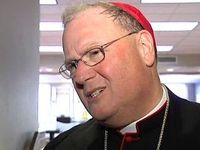I read a recent post by my friend and fellow blogger Webster Bull’s article “Richard III and the Contemporaneity of Christ” on the Il Sussidiario (the post was first published on Bull’s blog, Witness, a few weeks ago). Webster asks a great question: how do we know the Church has gotten Christ correct? That is, do we have confidence that the Church hasn’t given the faithful a wrong teaching about the person of Jesus and the Gospel?
Well the Church relies on use of natural reason and the coherence of Divine Revelation to authentically pass on knowledge of God’s plan of salvation. Theologians, priests, catechists and the like don’t define the tenets of the Faith; we hear the sound teaching of saints like Augustine, Bonaventure, Aquinas, Ratzinger, but they are not the ones who define what is to believed. Only the Church through the communio that exists between sacred Scripture, Tradition and the Magisterium, gives what is to be believed and how to live the Christian life. In divine revelation, the Lord told us, actually He promised us, that the Holy Spirit will preserve all that He (Jesus) preached and the historical reality we know as the Church: the gates of hell will not prevail against the Church, that is, error will not destroy the Truth. This historical reality, this guided companionship, this sacrament, this icon is what is known as the Church. So what was truth in the 1st century is also true (with some development since the first days) in the 21st. Hence, the contemporaneity of Christ. Christ is not a past event, He is a present reality. This theological datum is expressed in the Plus, we Catholics believe that one piece of Scripture interprets another, and all of Scripture speaks of Christ and the plan of salvation; the same is true for the dogma of the faith.
In one of his letters, Saint Jerome said that he follows no one but Christ and those in communion with Him, that is, with the chair of Peter. So, I don’t think it is possible for the Church to teach anything but the truth of Christ that is free from ideology. But we also need to use our reason –in light of magisterial teaching– to determine if error could be taught by some theologian because we know that some theologians are their own magisterium and wedded to their opinion alone when it comes to dogma or doctrine.
Continue reading The promise made by Christ: error won’t prevail

